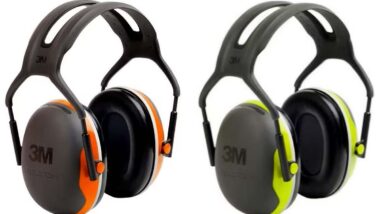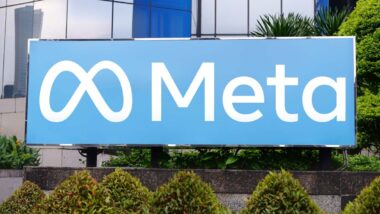Returned check fees and statement retrieval fees: Who’s affected?

Were you charged a fee after trying to deposit a check that bounced? Or were you charged a statement retrieval fee after requesting a copy of your bank statements? If so, you may be eligible to join a returned check fees and statement retrieval fees investigation.
Banks make a large portion of their profits by charging various penalty fees. One fee you may encounter is a returned check fee. These fees are charged to a customer who tries to deposit a check that bounces, and they can range from around $10 to $19. According to a recent communication by the Bureau of Consumer Protection, these fees may be unjust. They may be part of a broader effort by banks to increase their profits by charging frequent and costly fees to consumers at every turn. Lawyers are launching a returned check fees investigation and are looking for consumers who have been financially affected by returned check fees.
Another fee you may encounter is a statement retrieval fee. But again, according to the Bureau of Consumer Protection, these fees may be unlawful.
Do you qualify?
If Bank of America, Capital One or another financial institution hit you with a returned check fee, or if your bank or credit union hit you with a statement retrieval fee, you may have a legal claim. See if you qualify to join a returned check fee and statement retrieval fee investigation.
Fill out the form on this page for more information.
What are returned check fees?
Banks charge many different fees to consumers, including account and penalty fees. Returned check fees are charged to a customer who deposits a check that bounces. This fee is charged in addition to an NSF fee (non-sufficient fund fee), which happens when that deposited check is returned because of insufficient funds in the account of the person who wrote the check. Banks can potentially generate close to $50 in fees from one check.
Keeping track of these different fees, a major source of revenue for banks, can be overwhelming. Bank fees have increased dramatically since the 1980s, explains Investopedia.
Are returned deposit fees legal?
The Bureau of Consumer Protection posted a bulletin in June 2022 stating that many returned deposit fees may violate the Consumer Financial Protection Act. The bulletin does not explicitly state that the fees are always illegal but cautions financial institutions that charge these fees that they may come into conflict with consumer protection law.
Are returned deposit fees fair?
According to the bulletin, these fees are likely unfair because banks make blanket policies of charging them to anyone who tries to deposit a bad check regardless of the circumstance. The bulletin explains that consumers cannot reasonably avoid depositing a bad check because they generally have no way of determining if a check is valid. Because bank policies rarely take into account these circumstances and customers’ lack of control, these fees are likely unfair.
According to the bulletin, the fees may also be unfair because they do not represent a penalty to the person responsible for the bad check and are charged to people who do not benefit from trying to deposit a bad check. The Bureau of Consumer Protection explains that beyond examining the fairness of a fee to the person charged, it also examines how the fee affects other consumers. While a bank might say it charges returned deposit fees to prevent processing costs being passed off to other consumers, the bureau says this would not have been the case, making the fee unfair in many ways.
Join a returned check fee and statement retrieval fee lawsuit investigation
If you were hit with a bank fee after trying to deposit a check that bounced, or if you were hit with a statement retrieval fee after requesting a copy of your statements, you may have a legal claim. The federal government has stated that many returned deposit fees may be unfair under federal law. Now, lawyers are taking the next step to protect consumers by launching a returned check fee and statement retrieval fee lawsuit investigation. Joining the investigation may be one way to hold banks accountable for charging unfair fees and may enable you to gain some compensation for fees that you incurred.
If your financial institution hit you with a returned check fee or statement retrieval fee, you may qualify to join a returned check fee and statement retrieval fee investigation.
Fill out the form on this page for a FREE case evaluation.
GET HELP – IT’S FREE
Join a returned deposit bank fee lawsuit investigation
If you qualify, an attorney will contact you to discuss the details of your potential case at no charge to you.
After you fill out the form, the attorneys who work with Top Class Actions may contact you to discuss your legal rights.
ATTORNEY ADVERTISING
The choice of a lawyer is an important decision and should not be based solely on advertisements.
Counsel responsible for this advertisement includes:
KalielGold PLLC (202-350-4783)
PAID ATTORNEY ADVERTISEMENT: THIS WEB PAGE IS AN ADVERTISEMENT AND THE PARTICIPATING ATTORNEY(S) ARE INCLUDED BECAUSE THEY PAY AN ADVERTISING FEE. Top Class Actions is not a law firm, lawyer referral service, or prepaid legal services plan. We do not endorse or recommend any third-party claims processing company, lawyer, or law firm who participates in the network. We do not make any representation, and have not made any judgment, as to the qualifications, expertise, or credentials of any participating lawyer or processing group. No representation is made that the quality of the legal services or claims processing to be performed is greater than the quality of legal services or claims processing performed by other lawyers or claims processing group. The information contained herein is not legal advice. Any information you submit to Top Class Actions does not create an attorney-client relationship and may not be protected by attorney-client privilege because Top Class Actions is not a law firm. Instead, your information will be forwarded to an attorney(s) or their agent(s) or a claims processing firm for the purpose of a confidential review and potential representation if you qualify. You will only be contacted by an attorney(s) or their agent(s) in response to your inquiry if your initial information appears to qualify you for representation. If you are not contacted by an attorney(s) or their agent(s) within one week, you should consult another firm since all legal claims are subject to filing deadlines. All photos on this website are stock art and do not depict clients.












